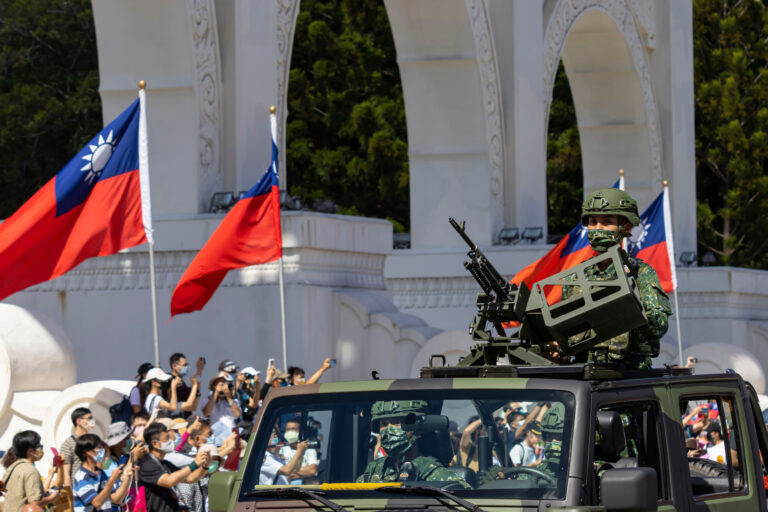In a surprising upset that defied most mainstream expectations, President-elect Donald Trump will become the 45th president of the United States of America. A successful businessman turned world’s most powerful politician, President-elect Trump’s vision of the United States’ role in the world and his “America First” policy will have immense influence on the complex foreign policy challenges facing the world today.
All transitions elicit a degree of uncertainty, so allies and partners are reasonably concerned about what a President Trump will mean for their relations with Washington. Yet, given President-elect Trump’s authentic “outsider” personality, there is also a historic opportunity for the next president to ignore or uproot entrenched interests that have dictated the assumptions underlying US policies; ultimately, this could have the effect of better serving US values and interests.
In this special issue of the Global Taiwan Brief, we asked four of the Global Taiwan Institute’s advisory board members for their opinions on what the Trump administration’s Taiwan policy should be. Writing here, in their personal capacity, two advisers previously served as directors of the United States’ de facto embassy in Taiwan, another as a career State Department intelligence official, and another as a legislative director to a former senior member of Congress. The opinions expressed in these articles are the author’s own.
There are, however, sharply contrasting views on what the United States should do in the Taiwan Strait. Short of outright abandoning Taiwan, an alternative approach was highlighted in a just-released report entitled “Creating a Stable Asia,” in which Michael Swaine, a senior fellow at the Carnegie Endowment for International Peace, recommended (beginning at 35:10) that Washington should retract the Six Assurances to Taiwan in order to come to a modus vivendi with China.
In what Swaine framed as a “long-term” strategy, he argues that to avoid a conflict with China there must be mutual assurances between Washington and Beijing that “require a dialogue between United State and China about military deployments and capabilities relevant to Taiwan.” Swaine acknowledged that his recommendation is currently limited by the Six Assurances, which states among many other important principles of US policy towards Taiwan, that “the August 17 Communiqué, ‘should not be read to imply that we have agreed to engage in prior consultations with Beijing on arms sales to Taiwan.’” In his public remarks, Swaine pointed out that the Six Assurances are “not law, not treaty; it’s statement of a policy, it’s not cast in concrete.”
Swaine is correct in noting that the Six Assurances is not law. Nevertheless, the Six Assurances represent a long-standing statement of Washington’s policy towards Taiwan for over 34 years. To turn its back on these assurances would not only be destabilizing but also damage US credibility. Furthermore, the Taiwan Relations Act is the law of the land. All statements of policy must be based on authority created by law. In this case, the Taiwan Relations Act, passed in 1979, prescribes that the executive branch must pursue policies that, among other things, “provide Taiwan with arms of a defensive character; and [must] maintain the capacity of the United States to resist any resort to force or other forms of coercion that would jeopardize the security, or the social or economic system, of the people on Taiwan.” Given the proximity of the issuance of the Six Assurances to the TRA, one could argue that this interpretation of law is closest to the Act’s original meaning. Yet, successive interpretation of the TRA have also led policy farther astray.
It has been over two years since a major policy address by a senior US official on US-Taiwan Relations affirmed the Six Assurances. Indeed, at the Senate Foreign Relations Committee on April 3, 2014, Assistant Secretary of State Daniel R. Russel stated that the Six Assurances “continue to play an important part as an element of our approach to Taiwan and the situation across the strait.” Noting its intermittent absence in official policy statements, the House of Representatives introduced H. Con. Res. 88 – Reaffirming the Taiwan Relations Act and the Six Assurances as cornerstones of United States-Taiwan relations, which stated that the Congress “(1) affirms that the Taiwan Relations Act and the Six Assurances are both cornerstones of United States relations with Taiwan; and (2) urges the President and Department of State to affirm the Six Assurances publicly, proactively, and consistently as a cornerstone of United States-Taiwan relations.”
Thirty-four years have passed since then-President Ronald Reagan conveyed the Six Assurances to preserve the “status quo.” President-elect Trump has a historic opportunity to issue new assurances that better reflect the changes that have occurred on both sides of the Taiwan Strait.[1] The objective of such new assurances would be to maintain the baseline policy enunciated in the TRA, as stated earlier, as well as, “[t]he preservation and enhancement of the human rights of all the people on Taiwan” and a guarantee that the “future of Taiwan will be determined by peaceful means.” At the very least, President-elect Trump should not turn his back on Reagan’s Six Assurances, which has been critical for maintaining peace and stability in the Taiwan Strait.
[1] For a detailed list of what a potential set of new assurances could say, refer to former Deputy Assistant Secretary of State Randy Schriver’s Taipei Times op-ed from 2007, “Taiwan Needs a New Six Assurances,” available at https://www.taipeitimes.com/News/editorials/archives/2007/08/22/2003375330/2



